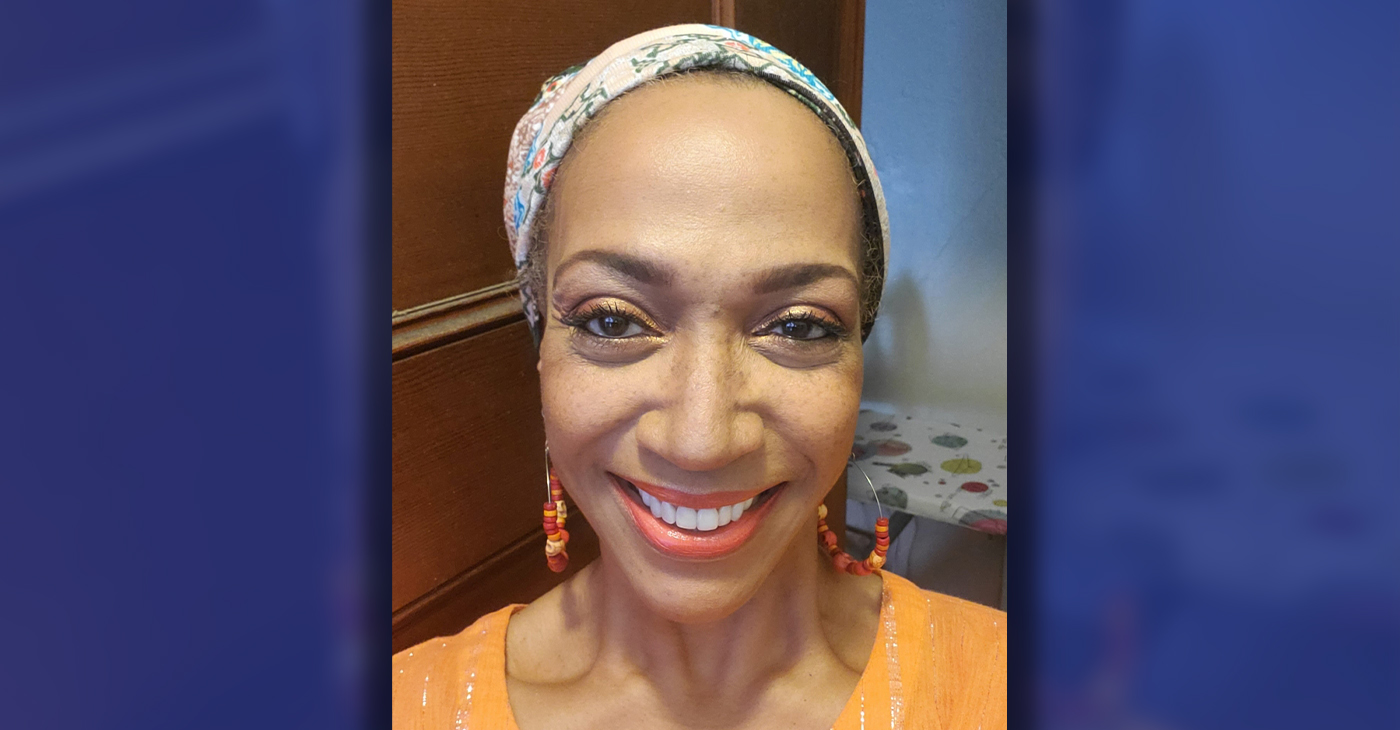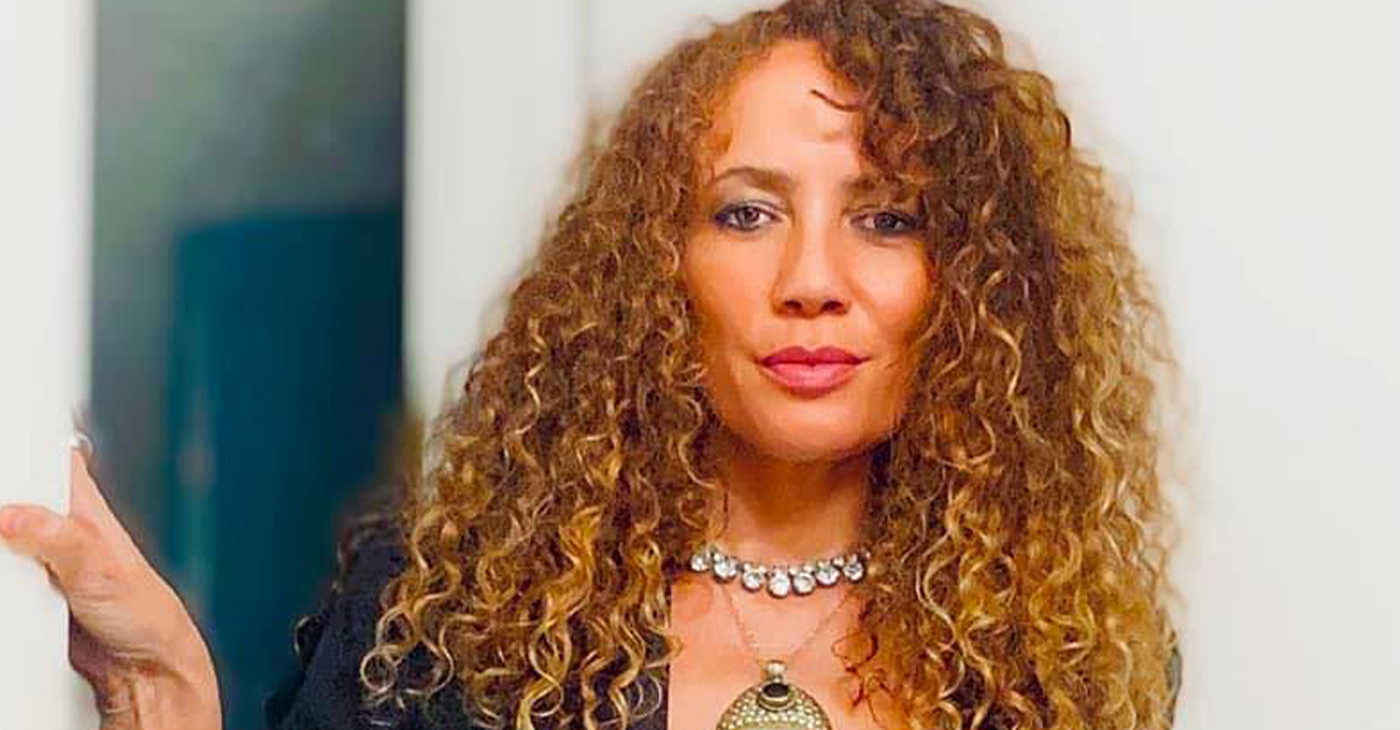Business
African American Chefs Break the Glass Ceiling in the Culinary World
NNPA NEWSWIRE — Many African American chefs often get stuck in the kitchen as sous chefs or line chefs and routinely don’t receive an opportunity to become head chefs, according to FSR. And, African American chefs, on the whole, have encountered tougher obstacles raising funds to open their own establishments.
By Stacy M. Brown, NNPA Newswire Correspondent
@StacyBrownMedia
The culinary business world is as cut throat as any other. It’s also known as an industry that hasn’t always allowed for much diversity in management and ownership at its higher echelon.
However, it appears that African Americans are finally breaking barriers, starring in many kitchens around the nation and serving up fine delicacies and treats that have those of all races and backgrounds coming back for second-helpings.
“Memphis is a foodie town with a minority-majority makeup… thoughtful discussions about equity in the food industry are at the forefront here and folks care about presentation, which is at the heart of the issue,” said Cynthia Daniels, the founder of Memphis Black Restaurant Week. “I’ve also seen the difficulty that black-owned restaurants experience with not having big marketing budgets to advertise for new business,” Daniels said.
That’s why she founded Memphis Black Restaurant Week and have advised other cities to do the same.
“It’s a celebration that advocates for black chefs, brings more awareness around their food and beverage traditions, generates new income, and moves the needle in terms of inclusivity in the culinary world,” Daniels said.
That inclusion and enthusiasm appears to have caught on.
“I am truly optimistic for the future with the culinary industry because while there are still a lot of areas in which to grow, we are slowly chipping away the stereotype of what African American chefs have to offer,” said award-winning executive chef and QVC Food Stylist Kristol Bryant.
“We are diversified in our skills, talents and cuisines. African American chefs are no longer just soul-food or southern cuisine chefs, we are so much more,” Bryant said.
“Through education and exploration, we can finally break into areas that we never knew were there. Being seen on television is great for us but being a legitimate authority in culinary in the corporate, private and entertainment sectors is the next step.”
An article in the culinary-centric publication, FSR Magazine, noted that when its reporters wrote about the rise of African American chefs in the U.S. three years ago, several themes prevailed, including that a wide range of talented African American chefs had emerged, like Executive Chef Edouardo Jordan in Seattle, Marcus Samuelsson in New York, and Mashama Bailey in Savannah, Ga.
Often, African American chefs are stuck in the kitchen as sous chefs or line chefs and routinely failing to be given an opportunity to become head chefs, according to FSR. And, African American chefs, on the whole, have encountered tougher obstacles raising funds to open their own establishments.
However, the industry now has several African American chefs serving as role models and paving the way for more minority chefs to make their mark in the U.S.
Examples include Chef Dieuveil Malonga, a 26-year old Forbes 30 under 30 Congolese Chef and a finalist for the Basque Culinary World Prize. Malonga works closely with luxury and fashion brands such as Rick Owens to bring awareness about the African continent through exclusive culinary experiences around the world.
With private clients like ASAP Rocky, Mos Def and others, Malonga has been featured by The New York Times, Vogue, BBC. He’s also spoken at The United Nations World Tourism Organization.
Chef Ronnie Rainwater of Delmonico Steakhouses also serves as another example of African Americans breaking the proverbial glass ceiling in the culinary world.
“He grew up in the kitchen, shadowing his Southern grandmother at the stove; anxious to taste anything he could get his hands on,” said Sade Mills of One 7 Communications.
Rainwater attended Western Culinary Institute in Portland, Oregon and obtained a Culinary Arts Degree in 1999. One of his early jobs in the industry was an internship in the kitchen at The Playboy Mansion in Beverly Hills, where he helped prepare dinners and private events for guests.
In June 1999, Ronnie was offered a position as a cook at Emeril Lagasse’s Delmonico Steakhouse at The Venetian and moved to Las Vegas.
In 2007, he was promoted to executive sous chef at the restaurant.
In January 2011, after working with Emeril for over 11 years at his restaurants in Las Vegas and on the East coast, he was tapped to become the next chef de cuisine of Delmonico Steakhouse.
“Today, he leads the kitchen at Delmonico and oversees all facets of its culinary operations, from sourcing products, to managing the restaurant’s in-house dry-aging program for prime U.S.D.A. beef, to crafting ambitious nightly tasting menus for guests at his kitchen table,” Mills said.
“His love of simple fresh ingredients has helped him cultivate close relationships with local farmers who supply the restaurant with their best products including beets, heirloom tomatoes, squash blossoms and seasonal herbs,” she said, noting that a local orchard provides him with fresh apples and cider, along with the apple wood used to brine and smoke the restaurant’s house cured bacon.
The rise of the African American chef also was seen at the 2018 James Beard Awards, where four African American and Caribbean American chefs were honored at the ceremony.
“There is a black hand in many pots and today, talented chefs are using their culinary skill-set as platforms to create, motivate and inspire,” said Charla Draper, a former food editor at Ebony and Southern Living magazines, who now serves as a consultant providing marketing services for food and food-related business.
“Chefs are using their talents traditionally and non-traditionally to mentor and open doors for others,” she said.
Activism
Books for Ghana
We effectively facilitated cross-continent community building! We met the call and provided 400 books for ASC’s students at the call of the Minister of Education. We supported the work of a new African writer whose breakout novel is an action-packed depiction of a young woman steeped in Ghanaian culture who travels to the USA for college, all the while experiencing the twists, turns, and uncertainties that life brings.

By Min. Rauna Thurston, Chief Mpuntuhene Afua Ewusiwa I
My travels to Afrika began in June 2022, on a tour led by Prof. Manu Ampim, Director of the organization Advancing The Research. I was scheduled to become an ordained Minister by Wo’se Community of the Sacred African Way. It was vital that my feet touch the soil of Kemet and my spirit connect with the continent’s people before ordination.
Since 2022, I’ve made six trips to Afrika. During my travels, I became a benefactor to Abeadze State College (ASC) in Abeadze Dominase, Ghana, originally founded by Daasebre Kwebu Ewusi VII, Paramount Chief of Abeadze Traditional Area and now run by the government. The students there were having trouble with English courses, which are mandatory. The Ghanaian Minister of Education endorsed a novel written by 18-year-old female Ghanaian first-time writer, Nhyira Esaaba Essel, titled Black Queen Sceptre. The idea was that if the students had something more interesting to read, it would evoke a passion for reading; this seemed reasonable to me. Offer students something exciting and imaginative, combined with instructors committed to their success and this could work.
The challenge is how to acquire 800 books?!
I was finishing another project for ASC, so my cash was thin and I was devoid of time to apply for annual grants. I sat on my porch in West Oakland, as I often do, when I’m feeling for and connecting to my ancestors. On quiet nights, I reminisce about the neighborhood I grew up in. Across the street from my house was the house that my Godfather, Baba Dr. Wade Nobles and family lived in, which later became The Institute for the Advanced Study of Black Family Life & Culture (IASBFLC). Then, it came to me…ancestors invited me to reach out to The Association of Black Psychologists – Bay Area Chapter (ABPsi-Bay Area)! It was a long shot but worth it!
I was granted an audience with the local ABPsi Board, who ultimately approved funding for the book project with a stipulation that the Board read the book and a request to subsequently offer input as to how the book would be implemented at ASC. In this moment, my memory jet set to my first ABPsi convention around 2002, while working for IASBFLC. Returning to the present, I thought, “They like to think because it feels good, and then, they talk about what to do about what they think about.” I’m doomed.
However, I came to understand why reading the book and offering suggestions for implementation were essential. In short: ABPsi is an organization that operates from the aspirational principles of Ma’at with aims of liberating the Afrikan Mind, empowering the Afrikan character, and enlivening: illuminating the Afrikan spirit. Their request resulted in a rollout of 400 books in a pair-share system. Students checked out books in pairs, thereby reducing our bottom line to half of the original cost because we purchased 50% fewer units. This nuance promoted an environment of Ujima (collective work & responsibility) and traditional Afrikan principles of cooperation and interdependence. The student’s collaborative approach encouraged shared responsibility, not only for the physical book but for each other’s success. This concept was Dr. Lawford Goddard’s, approved by the Board, with Dr. Patricia “Karabo” Nunley at the helm.
We effectively facilitated cross-continent community building! We met the call and provided 400 books for ASC’s students at the call of the Minister of Education. We supported the work of a new African writer whose breakout novel is an action-packed depiction of a young woman steeped in Ghanaian culture who travels to the USA for college, all the while experiencing the twists, turns, and uncertainties that life brings. (A collectible novel for all ages). A proposed future phase of this collaborative project is for ASC students to exchange reflective essays on Black Queen Sceptre with ABPsi Bay Area members.
We got into good trouble. To order Black Queen Sceptre, email esselewurama14@gmail.com.
I became an ordained Minister upon returning from my initial pilgrimage to Afrika. Who would have imagined that my travels to Afrika would culminate in me becoming a citizen of Sierra Leone and recently being named a Chief Mpuntuhene under Daasebre Kwebu Ewusi VII, Paramount Chief of Abeadze Traditional Area in Ghana, where I envision continued collaborations.
Min. Rauna/Chief Mpuntuhene is a member of ABPsi Bay Area, a healing resource committed to providing the Post Newspaper readership with monthly discussions about critical issues in Black Mental Health, Wealth & Wellness. Readers are welcome to join us at our monthly chapter meetings every 3rd Saturday via Zoom and contact us at bayareaabpsi@gmail.com.
Black History
Alice Parker: The Innovator Behind the Modern Gas Furnace
Born in Morristown, New Jersey, in 1895, Alice Parker lived during a time when women, especially African American women, faced significant social and systemic barriers. Despite these challenges, her contributions to home heating technology have had a lasting impact.

By Tamara Shiloh
Alice Parker was a trailblazing African American inventor whose innovative ideas forever changed how we heat our homes.
Born in Morristown, New Jersey, in 1895, Parker lived during a time when women, especially African American women, faced significant social and systemic barriers. Despite these challenges, her contributions to home heating technology have had a lasting impact.
Parker grew up in New Jersey, where winters could be brutally cold. Although little is documented about her personal life, her education played a crucial role in shaping her inventive spirit. She attended Howard University, a historically Black university in Washington, D.C., where she may have developed her interest in practical solutions to everyday challenges.
Before Parker’s invention, most homes were heated using wood or coal-burning stoves. These methods were labor-intensive, inefficient, and posed fire hazards. Furthermore, they failed to provide even heating throughout a home, leaving many rooms cold while others were uncomfortably warm.
Parker recognized the inefficiency of these heating methods and imagined a solution that would make homes more comfortable and energy-efficient during winter.
In 1919, she patented her design for a gas-powered central heating system, a groundbreaking invention. Her design used natural gas as a fuel source to distribute heat throughout a building, replacing the need for wood or coal. The system allowed for thermostatic control, enabling homeowners to regulate the temperature in their homes efficiently.
What made her invention particularly innovative was its use of ductwork, which channeled warm air to different parts of the house. This concept is a precursor to the modern central heating systems we use today.
While Parker’s design was never fully developed or mass-produced during her lifetime, her idea laid the groundwork for modern central heating systems. Her invention was ahead of its time and highlighted the potential of natural gas as a cleaner, more efficient alternative to traditional heating methods.
Parker’s patent is remarkable not only for its technical innovation but also because it was granted at a time when African Americans and women faced severe limitations in accessing patent protections and recognition for their work. Her success as an inventor during this period is a testament to her ingenuity and determination.
Parker’s legacy lives on in numerous awards and grants – most noticeably in the annual Alice H. Parker Women Leaders in Innovation Award. That distinction is given out by the New Jersey Chamber of Commerce to celebrate outstanding women innovators in Parker’s home state.
The details of Parker’s later years are as sketchy as the ones about her early life. The specific date of her death, along with the cause, are also largely unknown.
Activism
2024 in Review: Seven Questions for Frontline Doulas
California Black Media (CBM) spoke with Frontline Doulas’ co-founder Khefri Riley. She reflected on Frontline’s accomplishments this year and the organization’s goals moving forward.

By Edward Henderson, California Black Media
Frontline Doulas provides African American families non-medical professional perinatal services at no cost.
This includes physical, emotional, informational, psychosocial and advocacy support during the pregnancy, childbirth and postpartum period. Women of all ages — with all forms of insurance — are accepted and encouraged to apply for services.
California Black Media (CBM) spoke with co-founder Khefri Riley. She reflected on Frontline’s accomplishments this year and the organization’s goals moving forward.
Responses have been edited for clarity and length.
Looking back at 2024, what stands out to you as your most important achievement and why?
In 2024, we are humbled to have been awarded the contract for the Los Angeles County Medical Doula Hub, which means that we are charged with creating a hub of connectivity and support for generating training and helping to create the new doula workforce for the medical doula benefit that went live in California on Jan. 1, 2023.
How did your leadership and investments contribute to improving the lives of Black Californians?
We believe that the revolution begins in the womb. What we mean by that is we have the potential and the ability to create intentional generational healing from the moment before a child was conceived, when a child was conceived, during this gestational time, and when a child is born.
And there’s a traditional saying in Indigenous communities that what we do now affects future generations going forward. So, the work that we do with birthing families, in particular Black birthing families, is to create powerful and healthy outcomes for the new generation so that we don’t have to replicate pain, fear, discrimination, or racism.
What frustrated you the most over the last year?
Working in reproductive justice often creates a heavy burden on the organization and the caregivers who deliver the services most needed to the communities. So, oftentimes, we’re advocating for those whose voices are silenced and erased, and you really have to be a warrior to stand strong and firm.
What inspired you the most over the last year?
My great-grandmother. My father was his grandmother’s midwife assistant when he was a young boy. I grew up with their medicine stories — the ways that they healed the community and were present to the community, even amidst Jim Crow.
What is one lesson you learned in 2024 that will inform your decision-making next year?
I find that you have to reach for your highest vision, and you have to stand firm in your value. You have to raise your voice, speak up and demand, and know your intrinsic value.
In a word, what is the biggest challenge Black Californians face?
Amplification. We cannot allow our voices to be silent.
What is the goal you want to achieve most in 2025?
I really would like to see a reduction in infant mortality and maternal mortality within our communities and witness this new birth worker force be supported and integrated into systems. So, that way, we fulfill our goal of healthy, unlimited birth in the Black community and indeed in all birthing communities in Los Angeles and California.
-

 California Black Media4 weeks ago
California Black Media4 weeks agoCalifornia to Offer $43.7 Million in Federal Grants to Combat Hate Crimes
-

 Black History4 weeks ago
Black History4 weeks agoEmeline King: A Trailblazer in the Automotive Industry
-

 California Black Media4 weeks ago
California Black Media4 weeks agoGov. Newsom Goes to Washington to Advocate for California Priorities
-

 California Black Media4 weeks ago
California Black Media4 weeks agoCalifornia Department of Aging Offers Free Resources for Family Caregivers in November
-

 Activism3 weeks ago
Activism3 weeks agoOakland Post: Week of November 27 – December 3, 2024
-

 Activism4 weeks ago
Activism4 weeks agoOCCUR Hosts “Faith Forward” Conference in Oakland
-

 Activism4 weeks ago
Activism4 weeks agoRichmond Seniors Still Having a Ball After 25 Years
-

 Activism2 weeks ago
Activism2 weeks agoButler, Lee Celebrate Passage of Bill to Honor Congresswoman Shirley Chisholm with Congressional Gold Medal
























































4 Comments